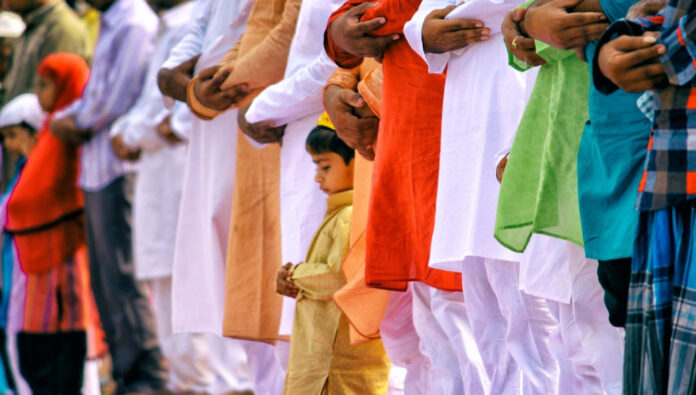7Importance of Namaz, also known as salah, is the obligatory Islamic prayer performed five times a day by Muslims. It’s considered the second pillar of Islam, following the declaration of faith (shahada). This daily practice holds immense significance, shaping the lives of Muslims spiritually, mentally, and socially. This essay delves into the importance of namaz, exploring its various aspects and the benefits it brings to those who perform it with devotion.
Exploring the Importance of Namaz (Salah)
Quranic Emphasis on Namaz
The Quran, the holy book of Islam, repeatedly emphasizes the importance of namaz. One of the earliest verses revealed to Prophet Muhammad (ﷺ) mentions prayer: “Establish worship [ salat (prayer)] at the decline of the sun until the darkness of the night and [at] the break of dawn. Indeed, recitation of dawn is ever witnessed.” (Quran 17:78). This verse establishes the foundation for the five daily prayers, outlining the specific times for each one.
Numerous other verses highlight the significance of namaz. The Quran states, “And be steadfast in prayer (salat), for prayer is a duty enjoined upon the believers at stated times.” (Quran 4:103). This verse emphasizes the obligatory nature of namaz, making it a clear commandment for all Muslims. Furthermore, the Quran associates successful believers with those who are “careful of [performing] their prayers” (Quran 23:2). This connection between prayer and success in the hereafter underscores its importance in a Muslim’s life.
Hadiths on the Importance of Namaz
The sayings and teachings of Prophet Muhammad (ﷺ), known as hadiths, further elaborate on the importance of namaz. One of the most well-known hadiths states, “The covenant between me and them is prayer; whoever abandons it is a disbeliever” (Sahih Muslim). While some scholars interpret this hadith metaphorically, highlighting the critical role of prayer in faith, it emphasizes the seriousness with which Muslims are expected to approach namaz.
Another hadith narrated by Abu Hurairah (ra) says, “The first matter that will be accounted for from a servant’s deeds on the Day of Judgement is the prayer” (Sahih al-Bukhari). This emphasizes the central role namaz plays in a Muslim’s life and the consequences of neglecting it.
Spiritual Significance of Namaz
Namaz is a direct connection between a believer and Allah (SWT). Throughout the five daily prayers, Muslims stand, recite Quran verses, bow, prostrate, and sit, focusing on their Creator and expressing gratitude, humility, and dependence. This act of worship strengthens one’s faith and deepens their connection with Allah (SWT).
The repetitive nature of namaz throughout the day serves as a constant reminder of one’s faith and purpose. Each prayer acts as a reset button, offering an opportunity to seek forgiveness for past sins and recommit to living a righteous life. Namaz also fosters patience, discipline, and mindfulness as it requires focus and dedication throughout the day.
Mental and Physical Benefits of Namaz
Beyond the spiritual realm, namaz offers significant mental and physical benefits. The physical postures involved in namaz, such as bowing and prostrating, promote flexibility and improve blood circulation. The act of standing still and focusing during prayer can be a form of meditation, reducing stress and promoting inner peace. Studies have shown that regular prayer can lower blood pressure, anxiety, and depression [1].
The structured nature of namaz throughout the day also provides a sense of routine and purpose, which can be beneficial for mental well-being. Furthermore, praying in congregation at the mosque fosters social interaction and a sense of belonging to a larger community.
Social Significance of Namaz
Namaz is not just an individual act of worship; it also plays a crucial role in strengthening social bonds within the Muslim community. The five daily prayers provide Muslims with opportunities to gather at the mosque, fostering a sense of unity and brotherhood (ummah). Performing prayers in congregation (jama’ah) is considered more rewarding than praying alone, highlighting the importance of social connection in Islam [2].
These gatherings at the mosque create opportunities for Muslims to socialize, share experiences, and support one another. They also provide a platform for learning and guidance from religious leaders (imams). This sense of community fostered through namaz strengthens social bonds and promotes a more cohesive Muslim society.
Challenges and Overcoming Obstacles
Despite its importance, Muslims may face challenges in consistently performing namaz. Busy schedules, distractions, and lack of knowledge about prayer can hinder devotion. However, Islam offers guidance to overcome these obstacles.
The Quran itself acknowledges the difficulties of maintaining regular prayer, stating
More Article and News Update Visit ABC Express

